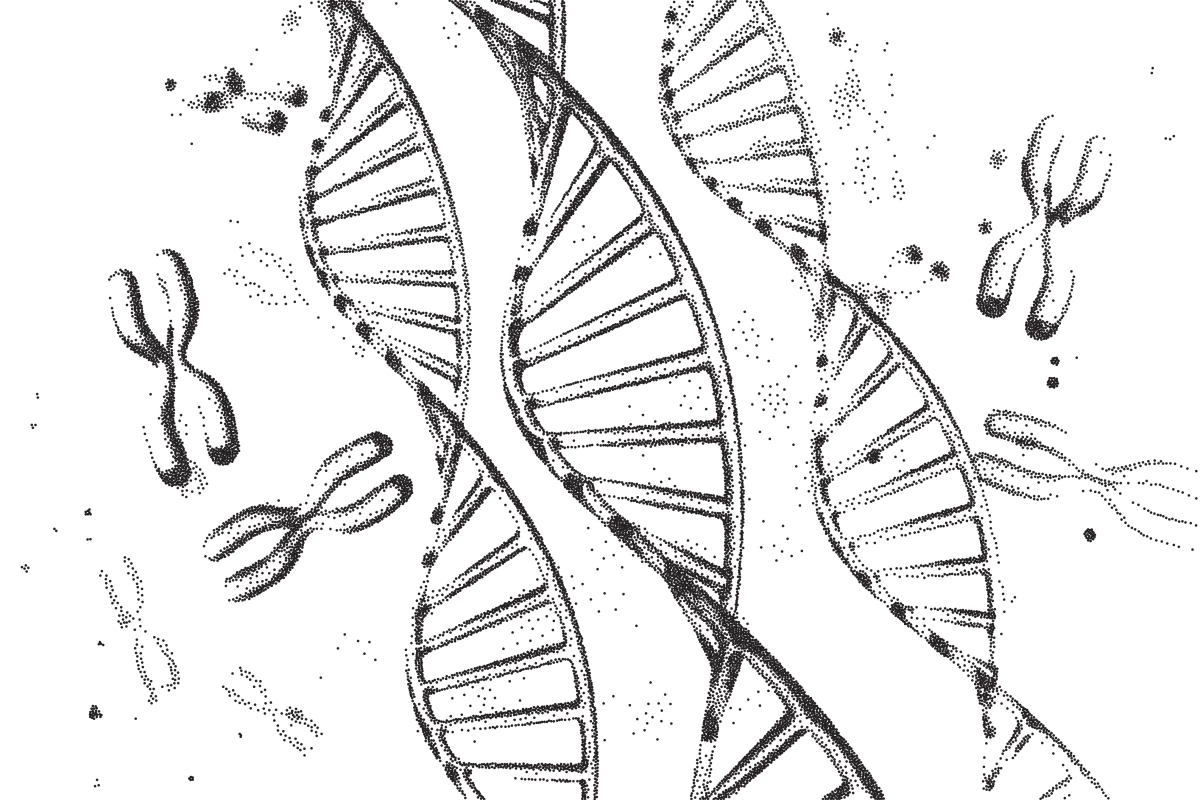In a new study described by one oncologist as "seminal" and "pioneering", researchers in the United States have successfully used CRISPR gene-editing technology to create personalized cancer-targeting immune cells. In a Phase 1 trial the researchers tested the technology on 16 patients, and while it was only mildly effective in its current form, the treatment was proven safe, paving the way for future personalized cancer treatments.
The research, described by a study co-author as the "most complicated therapy ever attempted in the clinic," brought together several different cutting-edge technologies for the very first time. The process began by taking blood and tumor samples from each patient, with the goal of homing in on DNA mutations that were unique to the tumor.
Once the cancer mutations were isolated the researchers used novel algorithms to work out which specific mutations were most likely to trigger effective responses from immune T cells. Each patient then supplied more blood samples, from which immune T cells were studied in order to find specific cells with receptors that best target the desired cancer mutation target.
In a process that took on average at least six months of complex lab work, the researchers identified three cancer-specific T cell receptors for each patient. Using CRISPR gene-editing technology the researchers then engineered a bunch of each patient's existing T cells to carry those specific receptors.
Sixteen patients were recruited for this initial Phase 1 safety trial. Only two patients experienced adverse effects from the subsequent infusion of CRISPR-edited T cells and both cases were managed without major issues.
The trial was primarily designed as a dose-escalation exercise to evaluate safety of the treatment. Nevertheless, the researchers do note five of the 16 participants did demonstrate a slowing of tumor growth. Speaking to Nature, study co-author Antoni Ribas said the doses used in the trial were very low so he believes the efficacy will improve in the future as the technology is optimized.
“This study demonstrates the feasibility of isolating and cloning multiple immune cell receptors recognizing mutations in cancer cells, the simultaneous knock-out of the endogenous immune receptor and knock-in of the redirecting immune receptor using single-step, non-viral precision genome editing, the manufacturing of CRISPR engineered T cells at clinical grade, the safety of infusing up to three gene edited immune cell products, and the ability of the gene edited immune cells to traffic to the patients’ tumors,” said Ribas, summing up the extraordinary variety of innovations this one piece of research has bundled together.
Experts not affiliated with the research have described the study as "seminal", "extraordinary", and "important". Despite the limited clinical responses, the research is a powerful proof-of-concept demonstrating a potential future where immune cells can be genetically modified to target each individual patient's particular cancer.
Astero Klampatsa, from the Institute of Cancer Research in London, calls the approach presented in this research "sophisticated" and "encouraging". But Klampatsa does flag one significant hurdle facing this kind of complex personalized therapy – it's not cheap or easy to produce.
"… the time, labor and expense involved in the processes required to develop this therapy are huge and risky," said Klampatsa. " It would be interesting to see whether this therapy will be applied in a bigger trial, where efficacy, but also the experimental protocols, can be further tested.”
Back in 2020 researchers demonstrated the safety of delivering CRISPR-edited immune T cells to a small cohort of cancer patients. That prior research edited the immune cells with generic changes designed to improve their ability to target tumors.
This new study takes that work in a more personalized direction, demonstrating how T cells can be engineered to home in on a patient's specific cancer. But considering each patient's custom T cell therapy took nearly six months to produce there is a huge amount of work to be done to turn this into a scalable treatment.
Stefanie Mandl, chief science officer at PACT Pharma, the company working on developing the therapy, is confident the process can be made more efficient. Speaking to Time, Mandl said there also is a potential middle-ground where some T cell receptor targets that are commonly shared between different cancers could lead to a semi-customized treatment that isn't specifically made to order for each and every patient.
“We need to improve the turnaround time, and the efficiency of the whole process, and that can be done,” Mandl added.
The new study was published in the journal Nature.
Sources: UCLA, PACT Pharma




